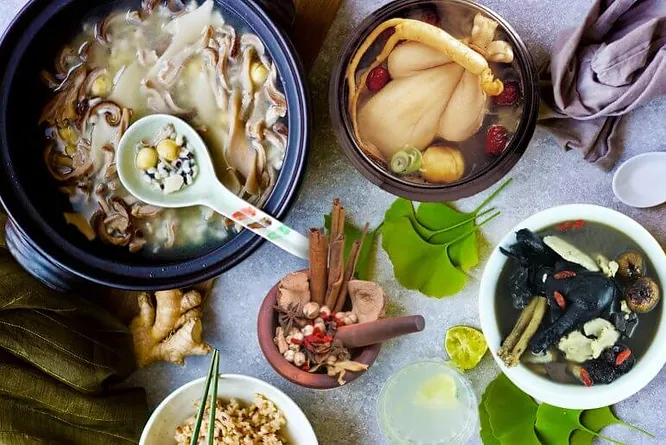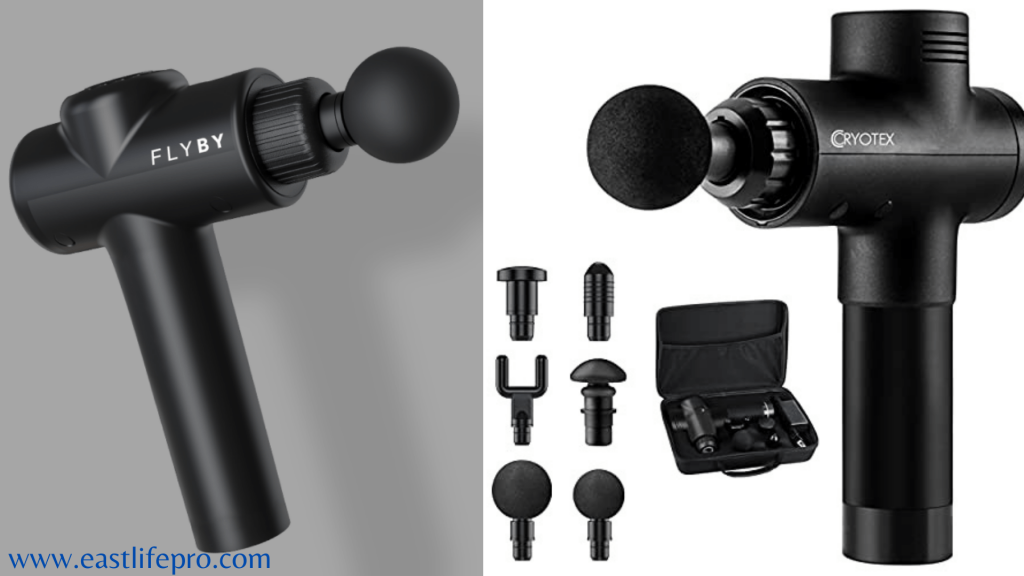Bringing a new life into the world is exciting, but the postpartum period can be challenging as well. Traditional Chinese culture believes confinement after childbirth helps women recover from childbirth and strengthen their bodies for motherhood. During confinement, certain food to avoid during confinement. Keep reading to learn about 5 food to avoid during confinement if you want to support your postpartum health and recovery!
What is Chinese Confinement?
“Chinese confinement,” or “zuo yue zi,” is a traditional postpartum practice that originated in China. It involves a period of rest and recovery for new mothers. The mother’s body is vulnerable to wind and cold during this time, which can cause long-term health problems if not treated properly.
Chinese confinement practices encourage women to stay indoors and avoid drafts and cold temperatures to protect themselves from these elements. Women confined to Chinese confinement are also advised to eat foods that are rich in nutrients and easy to digest while certain food to avoid during confinement that could be harmful or disruptive to their bodies at this sensitive time. Although Chinese confinement may seem outdated or restrictive by modern standards, many women swear by its benefits for postpartum recovery.
After childbirth, they believe they are better prepared for the challenges of motherhood if they rest and nourish their bodies.
Why are These Foods Forbidden in Chinese Confinement?
Traditional Chinese medicine prescribes strict dietary rules for new mothers during confinement, which lasts for 30-40 days. Some food to avoid during confinement because they are believed to have properties that can harm the body or disrupt its natural equilibrium, so they are forbidden. According to TCM, certain foods can cause excessive heat in the body or “yang” energy, which can hinder recovery after childbirth.
Cold beverages such as ice water or soda may also be prohibited as they are considered too cold for the body, and could stagnate blood flow. Spicy and greasy foods, for instance, are considered to increase body heat and slow digestion. In addition, some foods like salmon and lamb may contain toxins that need more time to be eliminated from the body, so these food to avoid during confinement.
When it comes to confinement practices in China, each family has its own specific set of dietary guidelines based on their cultural beliefs and traditions.
Foods to Avoid When In Chinese Confinement
To promote healing and recovery during Chinese confinement, it is important to know what kind of food to avoid during confinement that can have negative effects on the body or hinder the production of breast milk.
- During Chinese confinement, individuals should avoid certain foods to promote healing and recovery and prevent negative effects on the body or hindered production of breast milk.
- One should avoid cold or raw food as it can cause an imbalance in the body’s “qi” or energy flow, leading to illness and slower recovery, according to Chinese medicine. These types of food include fruits, salads, and uncooked vegetables.
- Spicy or greasy foods should also be avoided as they can disrupt qi flow and cause digestive discomfort. Examples of such foods are fried dishes, chili peppers, garlic, and onions.
- Eliminating processed and junk food from the diet during confinement is crucial since they provide little nutritional value and contain high levels of salt, sugar, preservatives, and additives.
- Seafood with high mercury content, like shark fin soup or tuna fish, should be avoided during Chinese confinement due to their harmful health implications for both the mother and the baby.
- It is highly beneficial to temporarily reduce caffeine intake during and after delivery to minimize dehydration risks caused by coffee’s diuretic impact.
By avoiding these five types of food during Chinese confinement, individuals can maintain good health for themselves and their babies while promoting fast recovery and breast milk production.
The Effects of Chinese Confinement on the Body
During Chinese confinement, known in Mandarin as “zuo yue zi,” new mothers stay indoors, rest, and consume specific foods believed to promote healing and rejuvenation. It is well known that Chinese confinement has a significant effect on the body. Resting allows the body to recover after childbirth and regain strength.
Warm meals are consumed during this period to help the body produce milk.
In Chinese medicine, certain foods can help replenish blood loss after delivery and prevent colds or illnesses during this vulnerable period. Not all aspects of Chinese confinement are universally suitable.
Prolonged bed rest can be uncomfortable for certain women and dietary restrictions may conflict with traditional beliefs. It is important to acknowledge and respect individual differences in determining the appropriateness of Chinese confinement practices. Observing Chinese confinement practices can promote physical recovery and bonding with the newborn baby, but before deciding whether or not to participate in them, each woman should assess whether these practices align with her lifestyle and beliefs.
Foods to Eat When In Chinese Confinement
During Chinese confinement, new mothers should refrain from eating certain foods. But they can also eat a variety of nutritious and delicious foods during this crucial postpartum period that will support their bodies.
- It’s highly recommended to consume traditional Chinese soups made from pork bones or chicken for their nourishing properties, as they provide essential nutrients such as collagen and calcium that strengthen bones and speed up postpartum recovery.
- Iron-rich leafy greens like spinach and kale can replenish lost blood after childbirth, while sweet potatoes and carrots offer vitamins with gentle digestion.
- Warm congee is a dietary staple during Chinese confinement because it is easy to digest yet satisfying and enhances the body’s circulation by adding ingredients such as ginger or sesame oil.
- Chinese confinement diets include fruits like papaya and red dates because of their nutritional benefits. Papaya is rich in digestive enzymes, while red dates have long been used to tone the blood.
A healthy and expeditious recovery after childbirth is ensured by incorporating these nutrient-rich foods into the diet during Chinese confinement.
The Five Foods to Avoid When In Chinese Confinement
To promote postpartum healing and recovery during Chinese confinement, it is important to actively avoid specific foods. Here are the top five food to avoid during confinement:
- Avoid Cold or Raw Foods: Cold or raw foods can disrupt the body’s internal temperature balance and weaken digestion, hindering the healing process.
- Steer Clear of Spicy Foods: Spicy foods can cause inflammation and irritation in the body, potentially slowing down postpartum healing.
- Say No to Seafood with High Mercury Content: Seafoods like shark, swordfish, and king mackerel have high levels of mercury, which can be harmful to both the mother and the baby during breastfeeding.
- Cut Back on Caffeine: It is advisable to reduce or eliminate caffeine intake during Chinese confinement as it can impact breast milk production and contribute to dehydration.
- Avoid Alcohol: It is highly recommended to abstain from alcohol consumption during this period as it can pass through breast milk and negatively affect the baby’s development.
By actively avoiding these detrimental foods during confinement, new mothers can enhance their chances of complete recovery while also promoting the health of their newborns.
The Health Risks of Eating Forbidden Foods
Chinese confinement poses a variety of health risks, and the restrictions are based not only on tradition but also on scientific reasoning. In new mothers who have recently given birth, avoiding certain foods is important to avoid discomfort and pain during the recovery period. Many ingredients may also contain harmful substances that can interfere with breast milk production or even pose a threat to a baby if consumed excessively.
It is believed that shark meat contains high levels of mercury, making it hazardous to nursing mothers and babies. Due to pregnancy hormones, the liver is subjected to significant strain, and consuming alcohol and greasy foods like fast food burgers will only exacerbate the damage to this organ. To ensure a healthy postpartum recovery process, new moms should adhere to these dietary restrictions as much as possible.
Conclusion
Food to avoid during confinement period can promote healing and prevent health complications such as postpartum bleeding, constipation, and poor milk production.mDuring Chinese confinement, five forbidden foods are prohibited: pork, ginger, seafood, alcohol, and spicy food. These restrictions should only be followed for 30-40 days after giving birth.
Incorporate nourishing meals that include ingredients such as lean proteins, whole grains, vegetables, and fruits, which will provide the essential nutrients for recovery and support breast milk production. By avoiding these five forbidden foods during this confinement period, you can ensure that you have a successful postpartum recovery while keeping your baby healthy. Traditional practices may seem strict, but they are beneficial to your well-being.
Author



